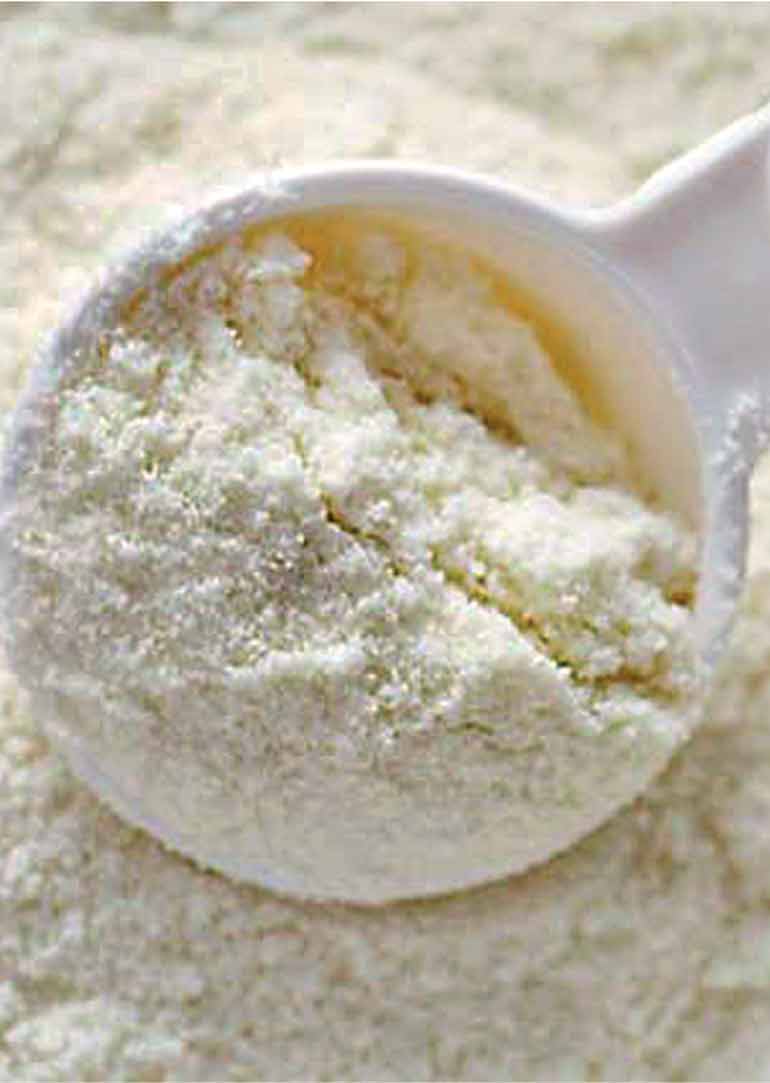Sunday Feb 22, 2026
Sunday Feb 22, 2026
Thursday, 12 August 2021 00:00 - - {{hitsCtrl.values.hits}}

The Full Cream Milk Powder (FCMP) industry, which caters to 80% of the country’s consumption, yesterday insisted on a price hike, saying it was needed to cut the Rs. 1.5 billion monthly loss on business and that the recent tax reduction was insufficient in comparison to the rising cost.
Sources told the Daily FT that from July, due to this unprecedented cost escalations, FCMP industry could lose Rs. 1.5 billion per month at contribution level and is already facing a severe crisis on cash flows.
Considering the prevailing global milk powder prices, the industry has requested from the Consumer Protection State Minister Lasantha Alagiyawanna and the Consumer Affairs Authority (CAA) for an increase of Rs. 260 (27%) per kilo, assuming dollar conversion at Rs. 203, which seems highly unlikely as of today.
This was discussed in detail with the Ministry and CAA yesterday via separate meetings with all leading importers, who requested a combination of duty relief and price revision to the effect of Rs. 260 per kg to ensure industry survivability and regular stock levels to customers.
The suggestion means the price of a kilo pack to be increased by 27.5% or Rs. 260 to Rs. 1,205 from Rs. 945 at present, and the 400 g pack to be increased by Rs. 102 or 26.8% to Rs. 482 from Rs. 380 at present.
At the meetings, the FCMP industry expressed their appreciation to the Government over its decision to waive off some of the taxes, but it was stressed that the benefit of this relief is limited to only Rs. 35 per kg of milk powder.
“The industry is already struggling to place new orders without an immediate price/tax relief of Rs. 260 per kg of FCMP at the earliest. This decision will still not mitigate the huge losses incurred by the industry from March,” sources said.
The industry, since March, has repeatedly requested CAA for an upward price revision commensurate with global prices. In the absence of that, some stopped imports and others have reduced orders by over 50%-60% from June to mitigate the huge losses.
In May, dairy products imports declined by 34% to $ 23.7 million from a year ago. During the first five months, dairy imports were down by 13% to $ 137 million.
Sources said even with the proposed price revision of Rs. 260 per kg, imported FCMP is still 30% cheaper than locally produced fresh milk pouches. They said a litre of reconstituted imported FCMP is approximately Rs. 156 as opposed to a one litre Highland liquid milk pouch at Rs. 205.
FCMP also caters to over 65 % of Sri Lanka’s total dairy requirement. Milk powder is imported mainly from New Zealand and Australia.
Industry sources said the Global Dairy Trade (GDT) prices for FCMP, which were on an exceptionally high trajectory starting from January of this year, has softened over the past four-six weeks, but the global milk powder prices still remain over 20% over January price thresholds.
They also said the rupee fluctuations as against the dollar, spiralling of packaging materials and production costs due to COVID-19 constraints, steep increase of freight rates and overhead increases for the year is severely impacting the industry’s survivability.
Sources said there had been steady growth of local fresh milk production over the past few years, but current supply has to be more than doubled to replace the 90,000 tons of FCMP imported annually. Due to multiple constraints, current local milk supplies had not increased beyond 2018 production levels as well.
The FCMP industry has taken all possible steps to supply high quality dairy nutrition to the general public, whilst complying to SLSI standards, and with minimum disruption to honour the Government’s intention of keeping the food supply intact, whilst complying with all stringent border clearance requirements and safety protocols by Ministry of Health to control the pandemic situation.
Moreover, some of the milk importing companies have already invested in products using local fresh milk to support the Government's quest to increase local fresh milk contribution.
Milk powder prices are under strict Government/CAA control from 2004 and companies have to go through a detailed and laborious process to determine price revisions. Due to price regulation, the imported milk powder industry has been operating on razor thin margins and contrary to popular belief, over the last decade, these companies have lost money significantly with the exception of two to three years.